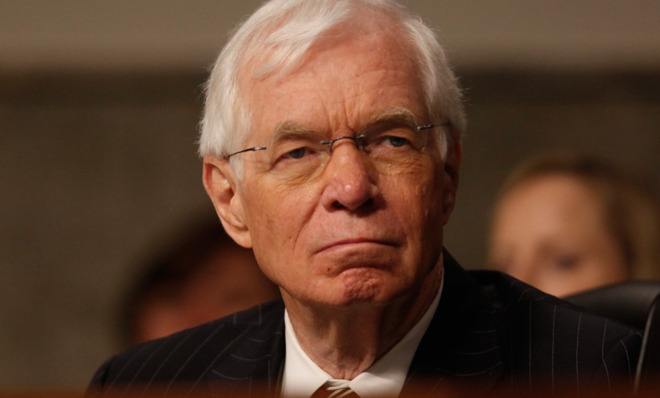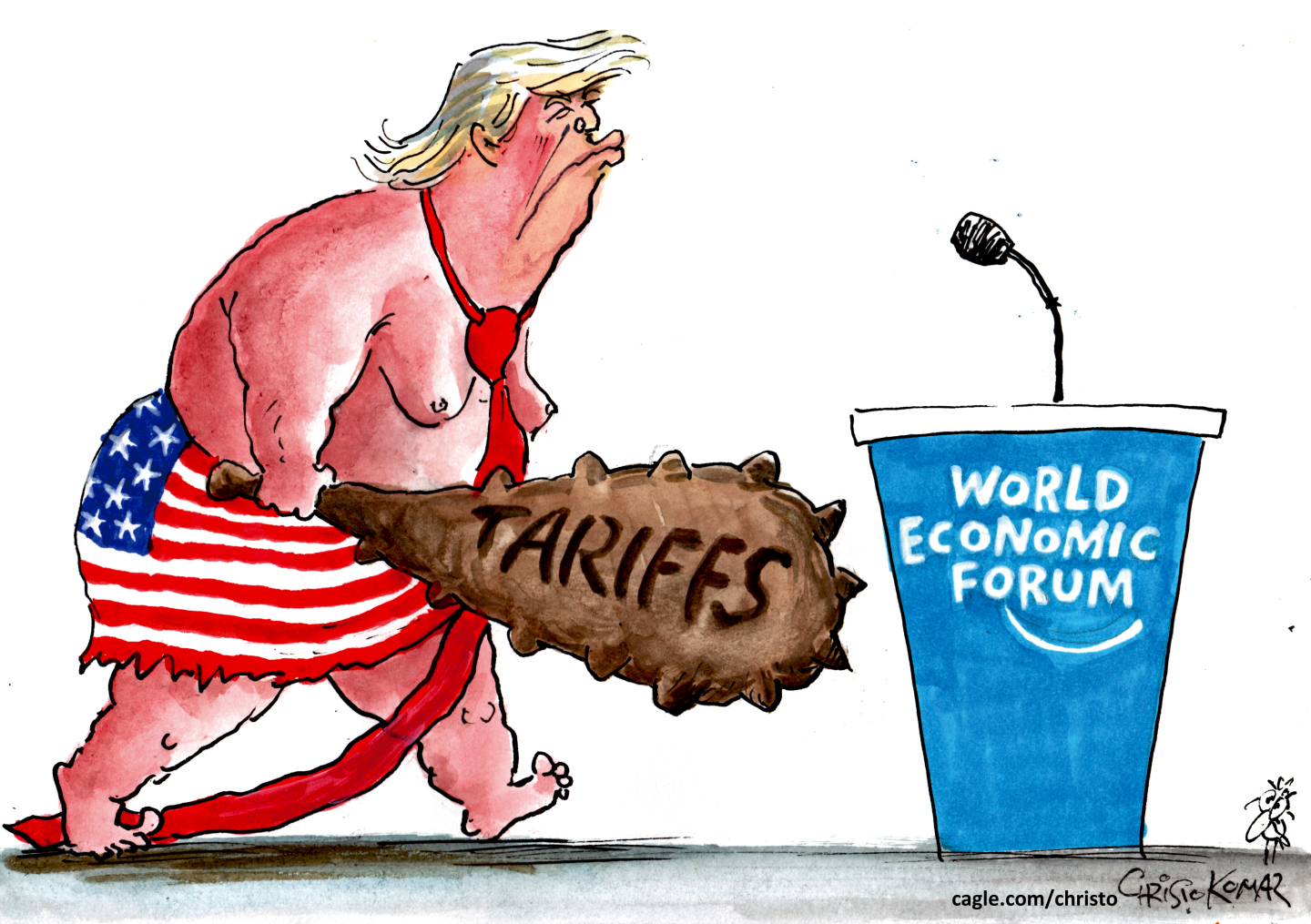Thad Cochran is in for the primary fight of his life
The six-term GOP senator may be in big trouble

Thad Cochran, the six-term senior senator from Mississippi, bucked widely held assumptions that he would retire by announcing on Friday that he will seek another term. His announcement sets up a primary showdown between Cochran, who enjoys the support of establishment Republicans, and Chris McDaniel, a young state legislator aligned with the Tea Party.
This will be the most difficult race of Cochran's long career. The veteran lawmaker is used to trouncing his Democratic opponents. His closest race was in 1984 against William Winter. Cochran still won by 22 points. But McDaniel has already lined up an impressive list of backers, including the Club for Growth, and Cochran has yet to begin seriously fundraising. As of Oct. 1, he only had about $800,000 in the bank, leading many party insiders to think Cochran was going to announce his retirement.
Cochran has spent the better part of the last four decades making a name for himself as a lawmaker who brings a large amount of federal dollars back to his home state. In 2010, he steered at least $500 million to Mississippi. Like most Republicans, he voted for the Iraq War resolution and opposed the Affordable Care Act. He is staunchly anti-abortion and pro-military.
The Week
Escape your echo chamber. Get the facts behind the news, plus analysis from multiple perspectives.

Sign up for The Week's Free Newsletters
From our morning news briefing to a weekly Good News Newsletter, get the best of The Week delivered directly to your inbox.
From our morning news briefing to a weekly Good News Newsletter, get the best of The Week delivered directly to your inbox.
Despite this, he is still considered a moderate by southern Republican standards, and some of his votes have rankled conservative purists. He voted for the Democrats' 2010 jobs bill and the New START nuclear agreement with Russia. He also supported Chuck Hagel's nomination for Defense secretary.
In today's hyper-polarized political environment, that makes Cochran vulnerable. The American Conservative Union gave him a rating of 52 percent in 2012, which was down 18 points from the year before. To survive the primary, Cochran will surely have to veer right, especially on fiscal issues.
And now, what was once considered his greatest strength may be his undoing. McDaniel has already zeroed in on Cochran's use of earmarks to bring money back to Mississippi.
"The national debt is the greatest moral crisis of this generation," McDaniel said in October. "So, let's go forth from this place making it perfectly clear that the era of big spending is over. The age of appropriations must end."
A free daily email with the biggest news stories of the day – and the best features from TheWeek.com
Cocrhan, who turns 76 today, can surely expect more of that sort of rhetoric from his 41-year-old opponent between now and the June 3 primary.
Laura Colarusso is a freelance journalist based in Boston. She has previously written for Newsweek, The Boston Globe, the Washington Monthly and The Daily Beast.
-
 Claudette Colvin: teenage activist who paved the way for Rosa Parks
Claudette Colvin: teenage activist who paved the way for Rosa ParksIn The Spotlight Inspired by the example of 19th century abolitionists, 15-year-old Colvin refused to give up her seat on an Alabama bus
-
 5 contentious cartoons about Donald Trump at Davos
5 contentious cartoons about Donald Trump at DavosCartoons Artists take on weaponized tariffs, a cheeky offering, and more
-
 Trump’s ‘Board of Peace’ comes into confounding focus
Trump’s ‘Board of Peace’ comes into confounding focusIn the Spotlight What began as a plan to redevelop the Gaza Strip is quickly emerging as a new lever of global power for a president intent on upending the standing world order
-
 The billionaires’ wealth tax: a catastrophe for California?
The billionaires’ wealth tax: a catastrophe for California?Talking Point Peter Thiel and Larry Page preparing to change state residency
-
 Bari Weiss’ ‘60 Minutes’ scandal is about more than one report
Bari Weiss’ ‘60 Minutes’ scandal is about more than one reportIN THE SPOTLIGHT By blocking an approved segment on a controversial prison holding US deportees in El Salvador, the editor-in-chief of CBS News has become the main story
-
 Has Zohran Mamdani shown the Democrats how to win again?
Has Zohran Mamdani shown the Democrats how to win again?Today’s Big Question New York City mayoral election touted as victory for left-wing populists but moderate centrist wins elsewhere present more complex path for Democratic Party
-
 Millions turn out for anti-Trump ‘No Kings’ rallies
Millions turn out for anti-Trump ‘No Kings’ ralliesSpeed Read An estimated 7 million people participated, 2 million more than at the first ‘No Kings’ protest in June
-
 Ghislaine Maxwell: angling for a Trump pardon
Ghislaine Maxwell: angling for a Trump pardonTalking Point Convicted sex trafficker's testimony could shed new light on president's links to Jeffrey Epstein
-
 The last words and final moments of 40 presidents
The last words and final moments of 40 presidentsThe Explainer Some are eloquent quotes worthy of the holders of the highest office in the nation, and others... aren't
-
 The JFK files: the truth at last?
The JFK files: the truth at last?In The Spotlight More than 64,000 previously classified documents relating the 1963 assassination of John F. Kennedy have been released by the Trump administration
-
 'Seriously, not literally': how should the world take Donald Trump?
'Seriously, not literally': how should the world take Donald Trump?Today's big question White House rhetoric and reality look likely to become increasingly blurred